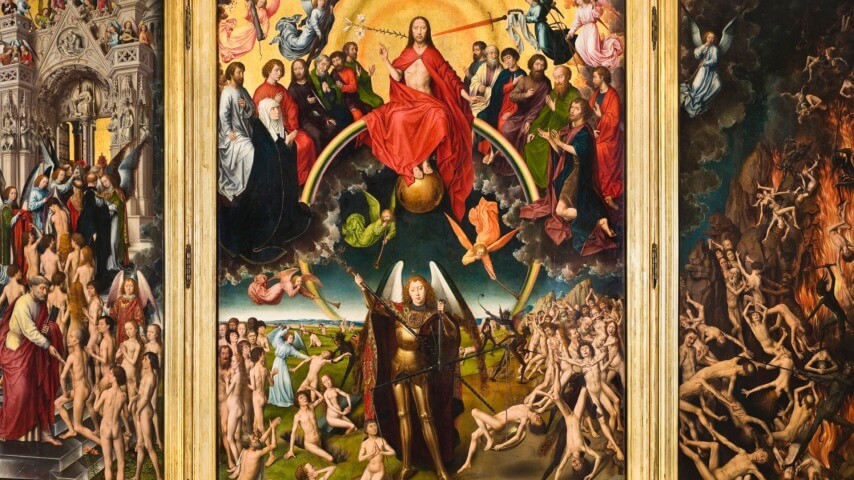We explore some of Wikipedia’s oddities in our 7,064,921-part monthly series, Wiki Wormhole.
This week’s entry: List Of Dates Predicted For Apocalyptic Events
What it’s about: The end of the world as we know it, whether you feel fine about that or not. For nearly as long as humans have had an awareness of the world around us, we’ve been waiting for it to hurry up and end already. From the Jewish uprising against the Romans in AD 66, to the end of the Mayan calendar in 2012, to last week’s Rapture that never came, to the heat death of the universe, we’re always bracing for the end. To our crushing disappointment, the world is still here, and we have to go back to work on Monday morning.
Biggest controversy: We’re all pretty sure the world is going to end any time now, we just can’t agree on how. The Bible ends with (spoiler alert) a detailed description of the End Times, so many apocalyptic predictions follow Revelations’ general template. Science paints an equally detailed picture of the sun inevitably becoming a red giant and burning off the Earth’s atmosphere, before swallowing the planet whole (don’t worry, we have about a billion years), but there are other theories involving the likelihood of an asteroid strike, gamma ray burst, supervolcano, or CO2 levels dropping too low to support plant life. And ask the general public, and you’ll hear every explanation from nuclear war and AI takeover to zombies or alien invasion. But as of 2012, 14 percent of people believed the world would end in their lifetime, including 22 percent of Americans.
Strangest fact: Being wrong about the world ending has never stopped anyone from predicting the end of the world. Numerous figures on the list predicted the end of the world, and then revised their date when the apocalypse didn’t come. But former NASA engineer Edgar C. Whisenant takes the crown. His 1988 book 88 Reasons Why The Rapture Will Be In 1988 predicted that WWIII would begin during September of that year, leading to the biblical end times. He barely had time for a book tour before autumn came and went, so he pushed the date all the way back to October 3. You’ll be shocked to learn the world didn’t end then either, so he revised again to September of 1989 (enough time for the paperback edition to come out, although the title would seem to have been a problem by that point). Another year came and went, and Whisenant pushed his prediction back to 1993. And then 1994. It took that many failed attempts before people stopped publishing his books.
The Jehovah’s Witnesses also predicted the end in 1941, which, we have to say, must have seemed pretty reasonable at the time. They revised that to 1975 (only auteur cinema seems to have been affected), and in 1982 one prominent Jehovah’s Witness religious scholar predicted that “two thousand zero zero, party over, oops, out of time,” but his only correct prediction was that U in fact Got the Look.
Thing we were happiest to learn: Apart from the world still being here? The fact that so many predictions have been wrong seems like a good enough reason not to expect the world to end in 2026 (per the Messiah Foundation International), 2060 (Sir Isaac Newton), 2129 (Sunni theologian Said Nursi), 2239 (some interpretations of the Talmud), or 2280 (Quran researcher Rashad Khalifa).
Thing we were unhappiest to learn: Even the end of the world isn’t the end of antisemitism. Impending apocalypse was often blamed on a particular group, and as Jews were an all-purpose scapegoat for medieval Christians, the end of the world was often portrayed as their fault. There were other, equally predictable arrows of blame—the French blamed the English, Protestants blamed Catholics, Catholics blamed Muslims. The end of the world largely seemed to be an excuse to attack the people you were already attacking anyway.
Best link to elsewhere on Wikipedia: We’d normally direct you to List Of Topics Characterized As Pseudoscience, but that was already a Wiki Wormhole. So instead, we’ll go with The Big Rip, the Big Bang’s opposite number, in which the universe is eventually torn apart by dark energy (and, thankfully, science now believes is not a mathematically sound theory.)
Further down the Wormhole: Alongside this list of apocalypses that didn’t happen, Wikipedia reassuringly provides a list of apocalypses that still might, in the form of Global Catastrophic Risks. These include everything from chemical warfare to micro black holes to biodiversity collapse from overfishing. Overtaxing the world’s fish stocks is an ongoing problem, which the United Nations Convention On The Law Of The Sea was established in part to prevent. But where maritime law is absent, there are unwritten laws governing the mighty waves. We’ll sail into the Custom Of The Sea next month.

 Keep scrolling for more great stories.
Keep scrolling for more great stories.
